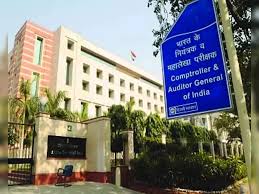NEW DELHI: The now-scrapped Delhi excise policy of 2021-22 of the Aam Aadmi Party (AAP) government had resulted in a loss of over Rs 2,000 crore to the exchequer, said a Comptroller and Audit General (CAG) report that has been accessed by The Tribune.
The findings of the audit report, which is yet to be tabled in the House, provided fresh ammunition to the opposition BJP ahead of the Assembly elections in Delhi.
AAP defended itself by questioning the authenticity of the purported CAG report. “Where is the CAG report? Do you have a copy? Was it made at the BJP office? The BJP is scared. They have become mentally unstable. We cannot respond to everything. On one hand, they are saying the CAG report has not been tabled, but on the other, they say it has been released. What do they mean?” said Sanjay Singh, Rajya Sabha MP. Several AAP leaders, including former Chief Minister Arvind Kejriwal and former Deputy CM Manish Sisodia, were earlier arrested in connection with cases related to the policy. They are currently out on bail. The policy was implemented to simplify liquor trade, bring transparency, check monopoly, generate optimum revenue as well as to ensure better consumer experience. However, as per the CAG report, the changes effected to the policy were “fraught with shortcomings” and the “actual implementation was suboptimal”.
The new excise policy, touted as a way to boost the city’s treasury, and to revolutionise the consumer experience by replacing the existing liquor vends with swanky stores, was implemented on November 17, 2021, amid the Covid-19 pandemic. Retail licences were given to private bidders for 849 vends across Delhi, which was divided into 32 zones.
As part of the policy, bars in hotels, clubs and restaurants in Delhi were allowed to operate till 3 am. Hotels, clubs and restaurants were allowed to serve Indian and foreign liquor in any area within the licensed premises, including the terrace or balcony, as long as the liquor served was away from public view.
The CAG report observed that the way the policy was designed it increased the risk of “monopolisation and cartel formation”.
It mentioned that recommendations by the expert panel were disregarded by a group of ministers (GoM) led by then Deputy CM Manish Sisodia.
All entities, even those facing complaints, were allowed to bid for licences. Financial health of bidders was not scrutinised and licences were granted or renewed to entities reporting losses. Several key decisions related to the policy were made without Cabinet approval or the approval of the Lieutenant Governor, the report observed.
As per the report, several fundamental changes were made to the policy relating to levy and collection of excise duty, administration of liquor supply chain and coverage of retail operations.
Instead of collecting excise duty on sale per unit of bottles, presumptive excise duty based on the sale figures of 2019-20 and a 10 per cent growth factor was subsumed in the zonal licence fee.
“Once the zonal licence fee was paid, there was incentive for retailers to increase the volume of sale (via economy of scale as well as deep discounting) without proportionate revenue gain to the government. Subsequent implementation issues led to a loss of revenue of approximately Rs 2,002.68 crore,” an excerpt from the report read.
Instances of relationship between business entities across liquor supply chains were also observed, despite earlier complaints at the tender evaluation stage, which were not properly investigated. “The skewed supply pattern as evidenced by supply chain data showed risk of exclusivity arrangements between licensees and brand pushing,” it read.
The policy had listed several important measures like setting up of liquor testing laboratories, batch testing for rigorous quality assurance and enhanced monitoring, but these were not implemented.
The audit report said liquor supply data indicated exclusivity arrangements between zonal licensees and wholesalers. Surrender of zonal licences during the extended policy period further led to substantial revenue loss.
BJP president JP Nadda claimed the CAG report had exposed intentional lapses, leading to a loss of over Rs 2,000 crore to the exchequer. On the other hand, AAP dismissed the saffron party’s charges as “manufactured and baseless”.


